A pedophilia scandal is engulfing the oldest Catholic institution in France
Here's what you need to know

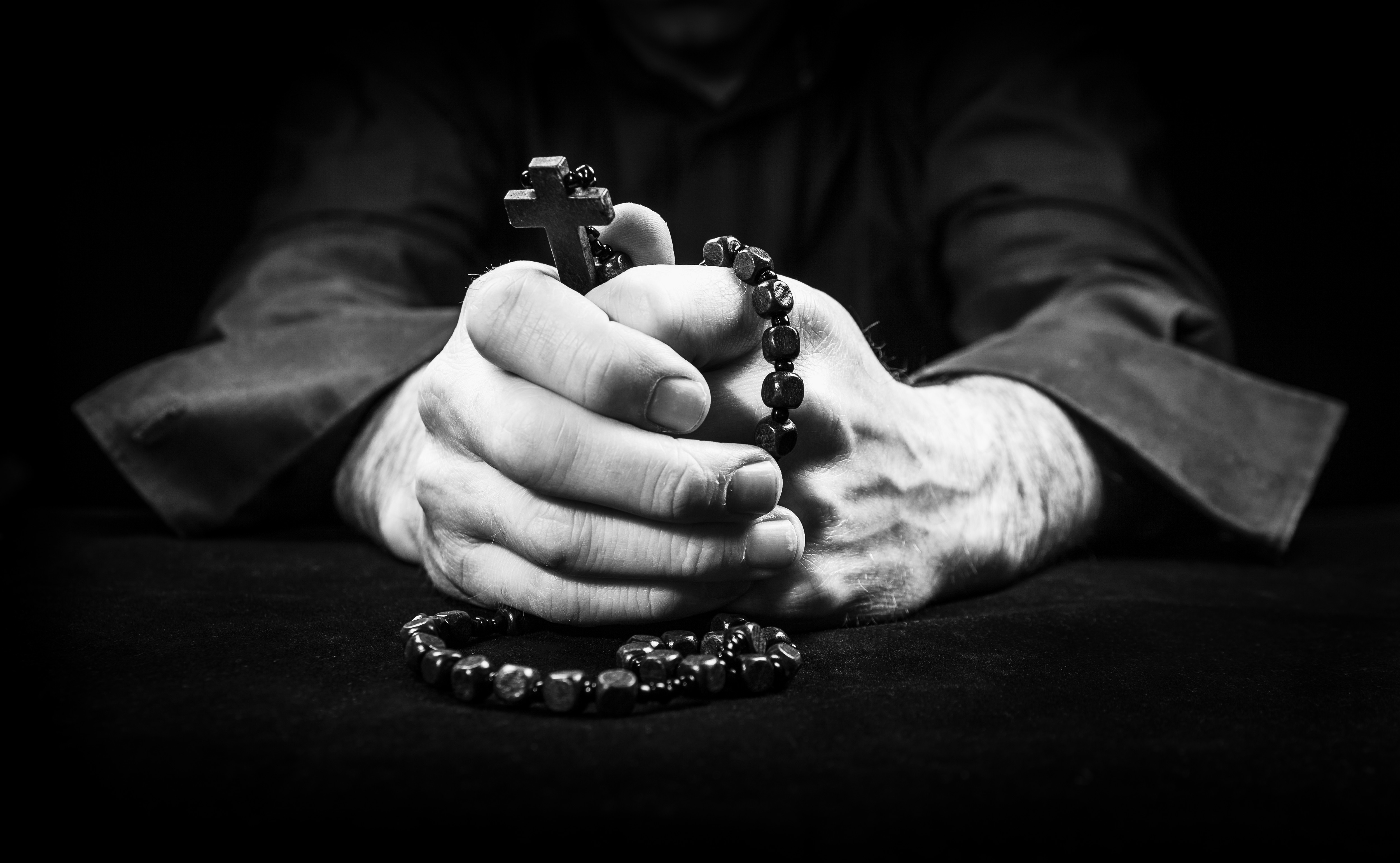
A free daily email with the biggest news stories of the day – and the best features from TheWeek.com
You are now subscribed
Your newsletter sign-up was successful
A miracle did not occur in Lourdes last week.
Instead, on March 15, the French media descended on the pilgrimage site in southwestern France, which is hosting a conference of the country's bishops. The journalists came to grill Cardinal Philippe Barbarin, who, as bearer of the ancient title "primat des Gaules," is France's most prominent Catholic cleric. As the cardinal of Lyon, France's second largest city, he runs a diocese rocked by a series of sexual abuse scandals. (The diocese of Lyons is also the oldest Catholic institution in France, stretching back to the Gallo-Roman period.) With the cicada-like clatter of clicking cameras, Barbarin declared he had "never, never, never" hid any act of pedophilia committed by his priests. Staring hard through his severe wire-rimmed glasses, Barbarin observed that none of these acts had happened under his watch. Besides, he noted, these crimes had passed the statute of limitations, so they could not be prosecuted.
"Dieu merci," he added with a sigh.
The Week
Escape your echo chamber. Get the facts behind the news, plus analysis from multiple perspectives.

Sign up for The Week's Free Newsletters
From our morning news briefing to a weekly Good News Newsletter, get the best of The Week delivered directly to your inbox.
From our morning news briefing to a weekly Good News Newsletter, get the best of The Week delivered directly to your inbox.
Rarely have so few words cut so deeply into the hearts of so many. With what seemed greater concern over legal liabilities for the church than the emotional scars of the victims, Barbarin compounded his clergy's sins of commission with a stunning sin of omission. The whole episode, since baptized the French "Spotlight," may well have consequences as seismic for the French church as the Boston case had for its American counterpart.
The events in question stretch back 40 years. In 1971, a young and charismatic priest, Bernard Preynet, became leader of a troop of Catholic Boy Scouts near Lyons. During the 20 years he remained at this post, hundreds of adolescents passed through. La Parole Libérée (The Liberated Voice), an association formed by victims, charges that Preynet sexually abused as many as 60 youths. (The Tribune de Lyon offered a more conservative estimate, quoting an anonymous source, himself a victim, stating that Preynet "had abused 20 kids.")
In 1991, as rumors percolated, Preynat confessed to his superiors about his activity. Moreover, he sent letters to the families of the children he had molested, in which he confessed to his actions, insisted he was as scarred by them as were his young charges, and — remarkably — refused to quit his position. "How could I, like a thief during the night, leave the parish where I had lived for 20 years and did not do only bad things?"
The families did not pursue charges, and ecclesiastical authorities packed Preynat off to central France, where he served for nearly 25 years in several rural parishes. While no longer a scout leader, his duties nevertheless brought him into contact with children. When several former scouts, now in their 40s, finally brought charges against Preynat in 2015, the Lyonnais diocese lurched into action. They released a communiqué that confirmed the truth of the accusations, but also reassured their parishioners that the priest, a quarter of a century after his serial molestations in Lyon, had been removed from all pastoral duties and only now was "forbidden to have any contact with children."
A free daily email with the biggest news stories of the day – and the best features from TheWeek.com
Blasting the church's response as belated and belittling, critics turned their fire on Cardinal Barbarin. Though he had assumed his post in Lyons in 2002, long after these events, he learned about them in 2007. Summoning Preynat to Lyon, Barbarin demanded to know if the "least thing" had occurred since the new posting. According to Barbarin, Preynat assured him that he had turned over a new leaf. Whether this is true remains to be seen. In an interview with the Catholic newspaper La Croix, Barbarin observed: "Many now reproach me for having believed him. And, yes, I believed him."
While many rub their eyes over Barbarin's credulity, others furrow their brows over the church's credibility. Six years ago, a survey taken by the polling institute TNS-Sofrès revealed that a large plurality of French (47 percent) had a "bad image" of the church. In a similar poll taken by Institut Odoxa following the revelations of Preynat's predations, 53 percent now share that same opinion. Now that other cases of sexual abuse by French clergy are coming to light, this trend will only continue. The press has revealed that in 2013, Barbarin promoted a local priest, giving him responsibility for several parishes. This same priest, however, had served 18 months in prison six years earlier for sexually abusing teenaged students at a Catholic community center. The cardinal's office refuses to say whether its occupant knew about these crimes when he promoted the priest.
Le Monde notes the stubborn belief that a "French specificity" had inoculated its church from the scandals that rocked the American and Irish churches. The place in France of laicité, or republican secularism, as well as the church's marginalization, seemed to explain why the country was spared scandals of "the same magnitude." Except, it now appears, it hasn't.
The issue of laicité, moreover, has politicized these events to a degree unknown in the U.S. Last week, Manuel Valls, the socialist prime minister, declared that Barbarin should "take responsibility" for the affair — a scarcely veiled suggestion that the cardinal resign. At the news conference, one of Barbarin's fellow bishops sardonically observed: "I admire our nation's laïcité." The well-known lawyer and columnist Florence Rault echoed the sentiment of her conservative peers when, in an interview, she lambasted Valls: "The prime minister's role is not to howl with the wolves over something he knows nothing."
The fault, though, does not lie exclusively with the socialists. Over the past few years, Barbarin has helped to blur the line between church and state affairs. In 2012, when the socialist government introduced legislation to legalize gay marriage, massive protests erupted across France. Though church leaders did not spur the widespread movements, they gave them their imprimatur. When Barbarin joined the protesters, he justified his decision by declaring that gay marriage not only "denatured" the bonds of marriage, but also endangered the wellbeing of children. Techniques like in vitro insemination and surrogacy, he intoned, "placed the right of the adult over that of the infant, and the right of the strongest over that of the weakest." (More recently, he sparked another controversy over gay marriage, suggesting that it might well lead to the legalization of polygamy and incest.)
Many now wonder where Barbarin's earlier solicitude for children has gone. During his press conference, Barbarin's "prayers" for the victims struck observers as less heartfelt than his worries over the church. The least one can say, the writer Philippe Besson observed in the newspaper Libération, is that the cardinal's "celebrated concern for the child is no longer his first preoccupation." Barbarin later admitted that his emphatic "dieu merci" was poorly chosen. Time will tell if the church's problem runs no deeper than a single phrase.
Robert Zaretsky teaches courses in modern European intellectual and cultural history at the Honors College of The University of Houston. He is the author of several books, including Albert Camus: Elements of a Life (Cornell University Press, 2010) and Camus: A Life Worth Living (Harvard University Press, 2013.) He is also a frequent contributor to the New York Times, Foreign Policy, Los Angeles Times, Jewish Daily Forward, Los Angeles Review of Books and Chronicle of Higher Education.
-
 Bad Bunny’s Super Bowl: A win for unity
Bad Bunny’s Super Bowl: A win for unityFeature The global superstar's halftime show was a celebration for everyone to enjoy
-
 Book reviews: ‘Bonfire of the Murdochs’ and ‘The Typewriter and the Guillotine’
Book reviews: ‘Bonfire of the Murdochs’ and ‘The Typewriter and the Guillotine’Feature New insights into the Murdoch family’s turmoil and a renowned journalist’s time in pre-World War II Paris
-
 Witkoff and Kushner tackle Ukraine, Iran in Geneva
Witkoff and Kushner tackle Ukraine, Iran in GenevaSpeed Read Steve Witkoff and Jared Kushner held negotiations aimed at securing a nuclear deal with Iran and an end to Russia’s war in Ukraine
-
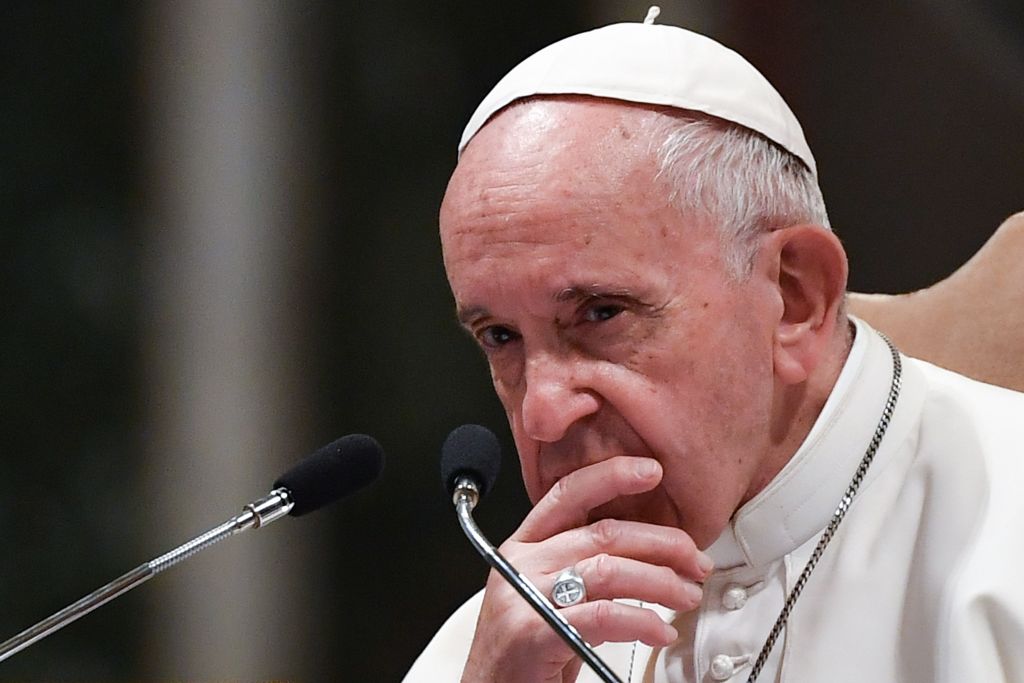 Pope Francis speaks about sex abuse scandals, Trump, and his conservatism
Pope Francis speaks about sex abuse scandals, Trump, and his conservatismSpeed Read
-
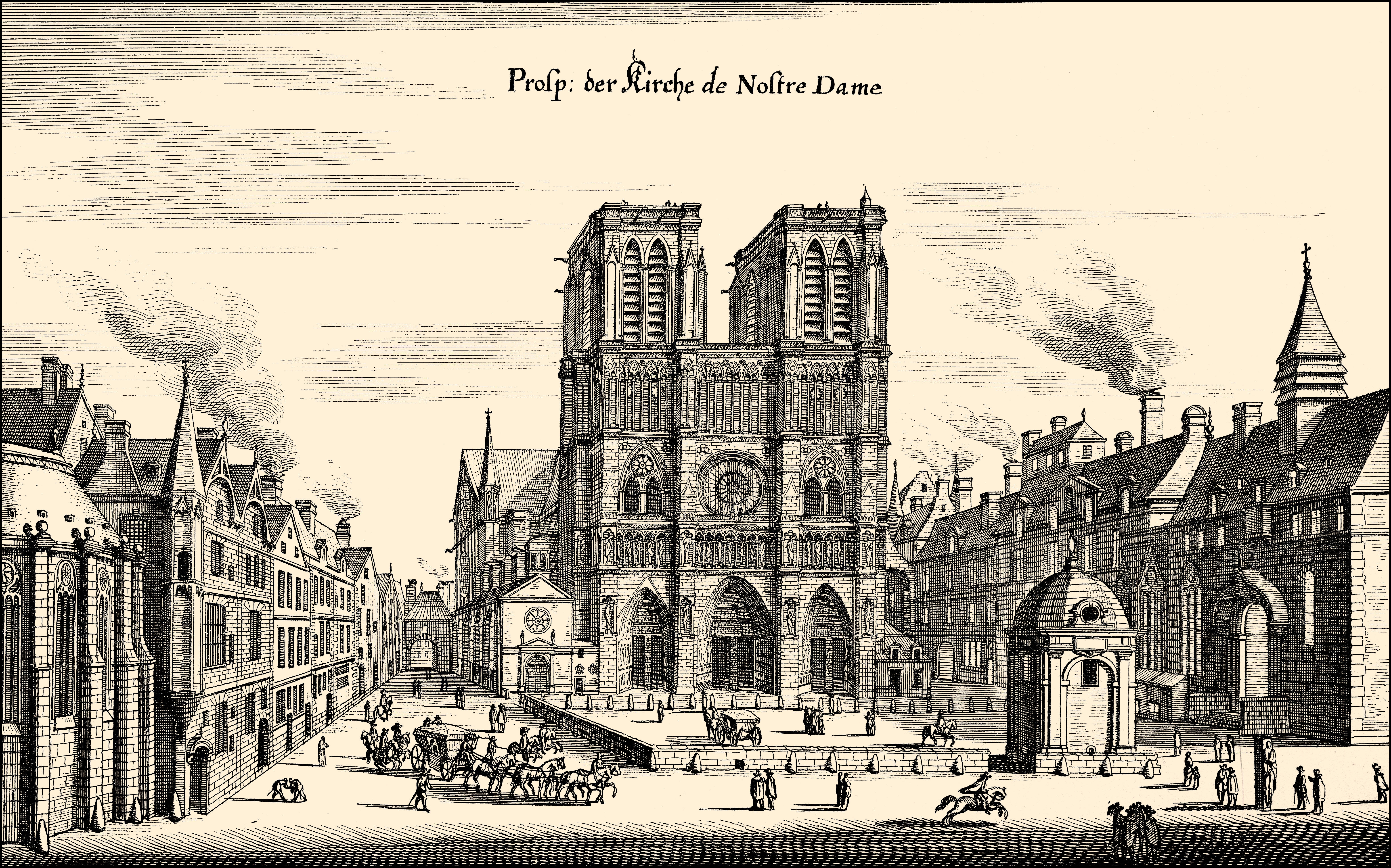 Notre Dame is a magnificent monument to a misunderstood age
Notre Dame is a magnificent monument to a misunderstood ageThe Explainer Every now and then, the stars align to create a virtuous cycle of creative brilliance, which illuminates civilization for centuries afterwards. The great cathedral arose in such an hour.
-
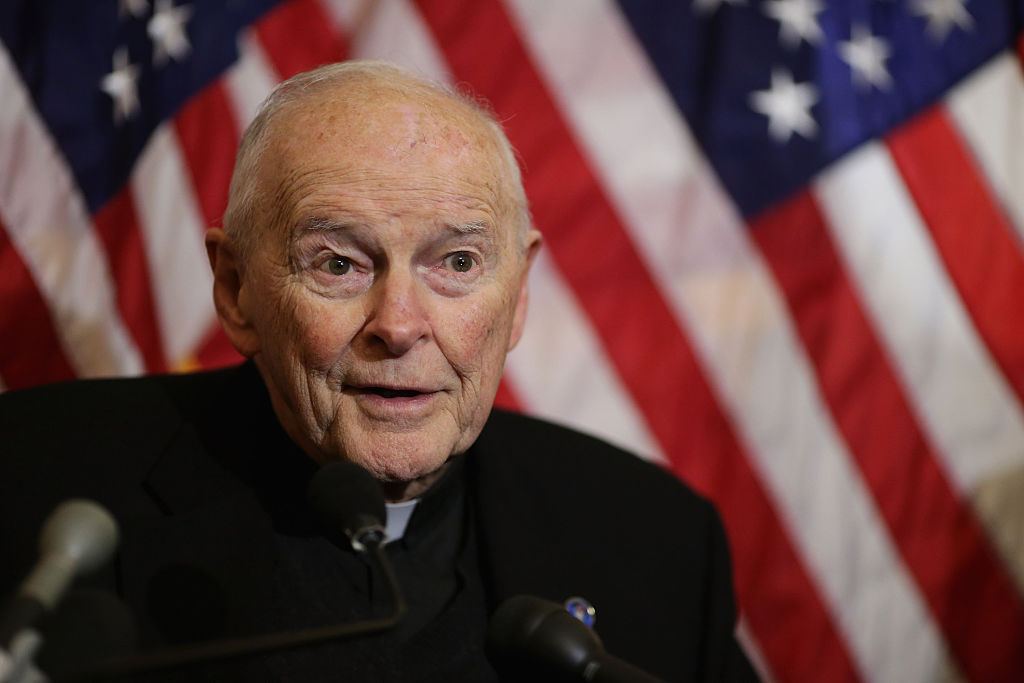 Pope Francis makes unprecedented decision in defrocking Theodore McCarrick
Pope Francis makes unprecedented decision in defrocking Theodore McCarrickSpeed Read
-
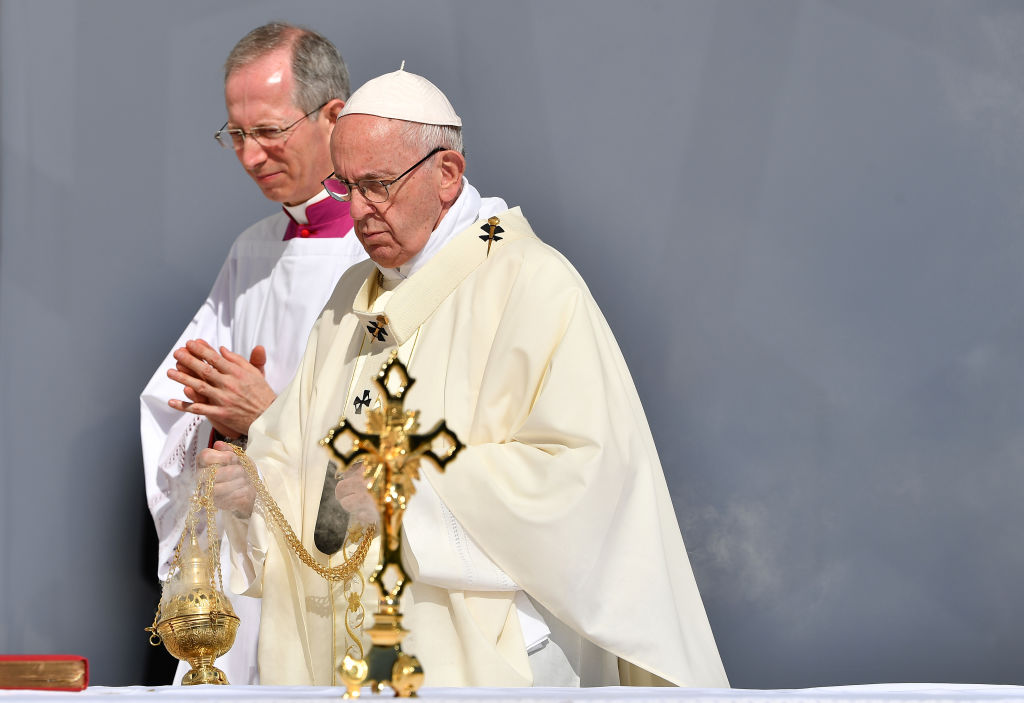 For the first time, Pope Francis publicly admits priests and bishops have sexually abused nuns
For the first time, Pope Francis publicly admits priests and bishops have sexually abused nunsSpeed Read
-
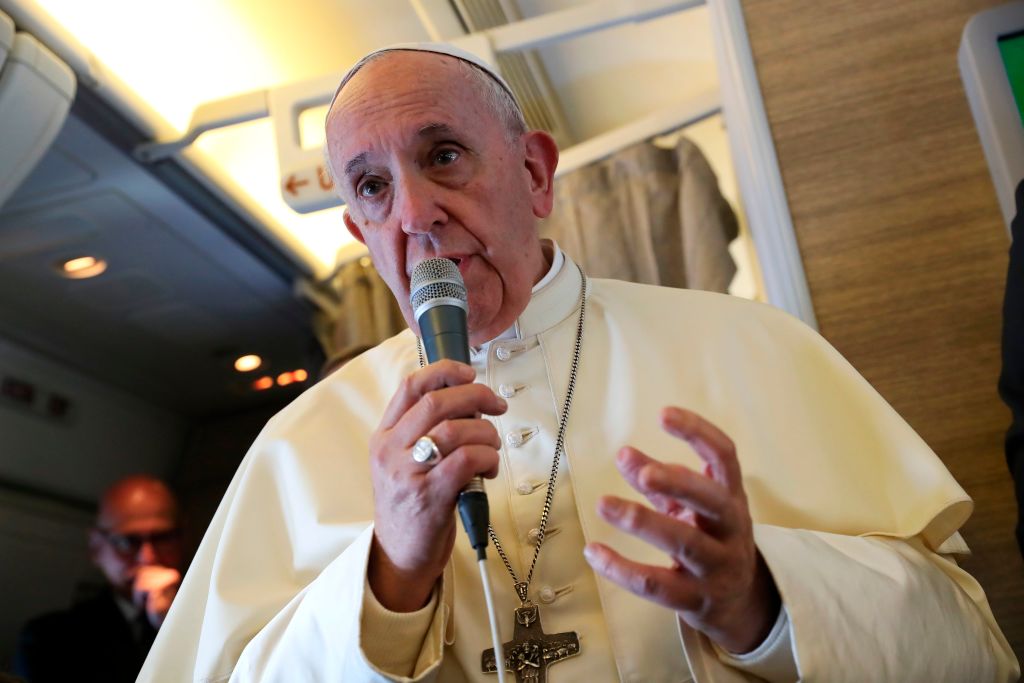 Pope Francis calls for peace in Yemen
Pope Francis calls for peace in YemenSpeed Read
-
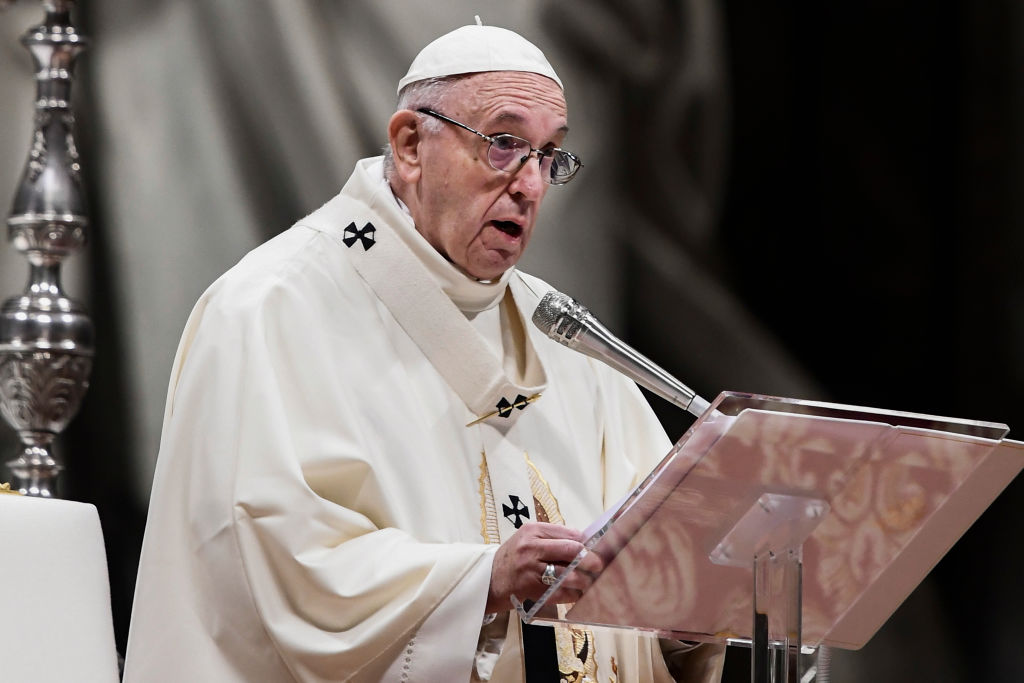 Pope Francis to abusive priests: 'Hand yourself over to human justice'
Pope Francis to abusive priests: 'Hand yourself over to human justice'Speed Read
-
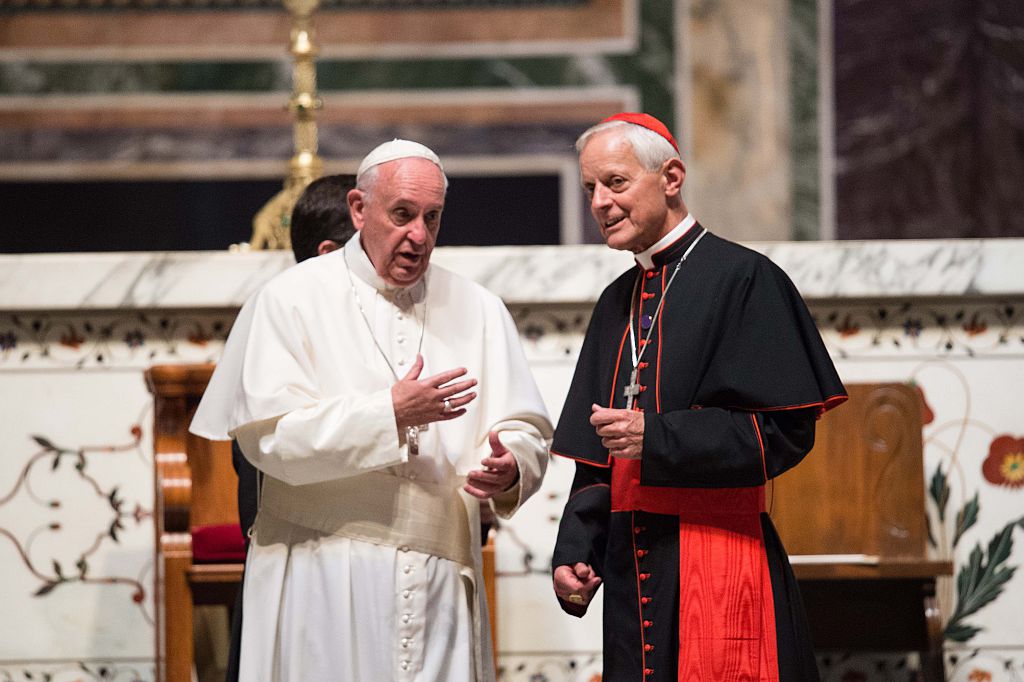 Pope Francis accepts resignation of embattled Washington Archbishop Donald Wuerl
Pope Francis accepts resignation of embattled Washington Archbishop Donald WuerlSpeed Read
-
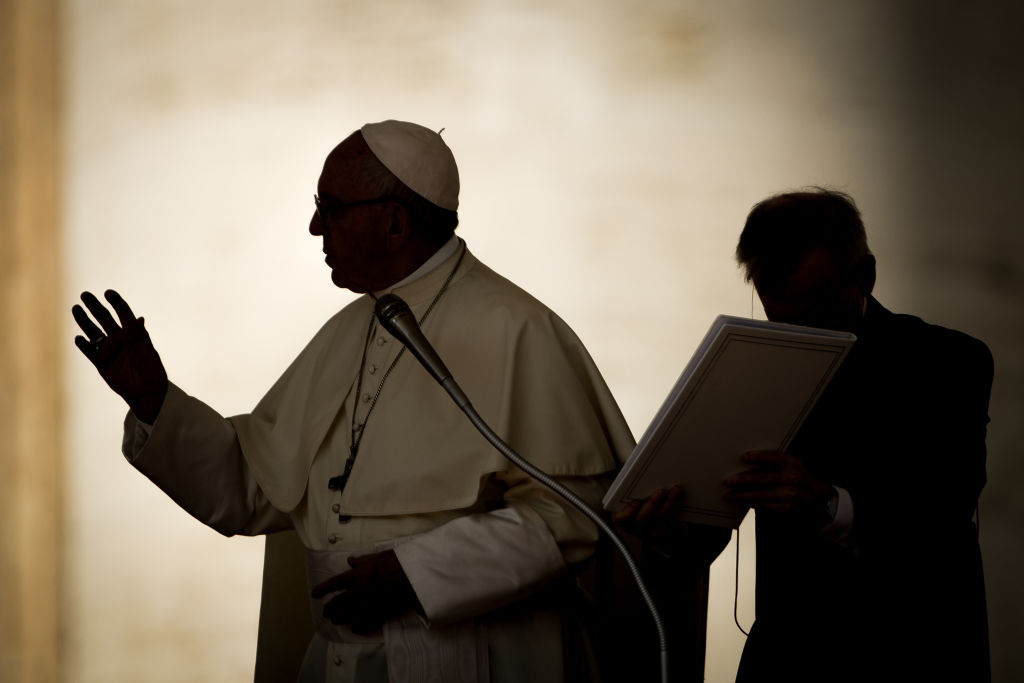 Pope Francis defrocks Chilean priest over sex abuse scandal
Pope Francis defrocks Chilean priest over sex abuse scandalSpeed Read
